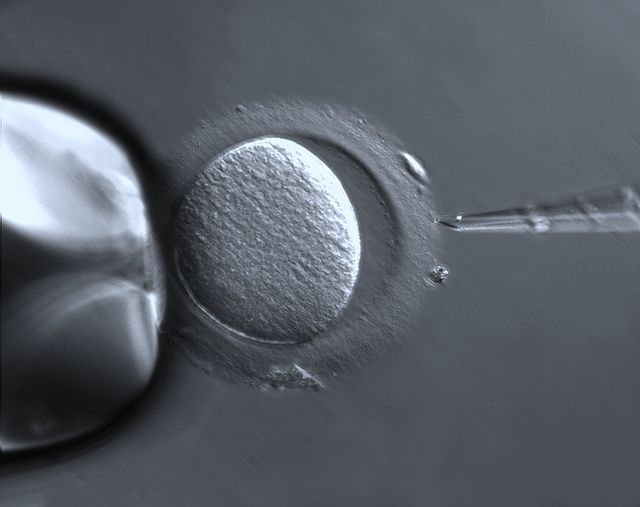Researchers are advocating for a reassessment of the 14-day rule governing embryo research, contending that an extension of the time limit could contribute to unravelling the reasons behind recurrent miscarriage and congenital conditions.
The call comes as advancements in scientific capabilities prompt a reconsideration of the ethical and regulatory framework surrounding embryo research.
The 14-day rule, established more than three decades ago, dictates that scientists must not grow human embryos in the laboratory for more than 14 days.
This limitation was imposed to align with the moment when the “primitive streak” emerges, marking the beginning of gastrulation, a crucial stage in embryonic development.
The rule was intended to prevent the experimentation of embryos beyond this point, balancing scientific progress with ethical considerations.
However, with advancements in technology and scientific understanding, some researchers argue that the 14-day rule is becoming increasingly arbitrary and is potentially hindering valuable research that could contribute to medical breakthroughs.
With an imminent overhaul of fertility laws and rapid scientific progress unfolding, scientists are advocating for a reassessment of the 14-day rule.
Dr Peter Rugg-Gunn from the Babraham Institute in Cambridge highlighted the period from two to four weeks as the “black box” of embryo development.
Currently, there is no practical method for studying this critical phase, severely limiting our understanding.
Dr Rugg-Gunn emphasised that studying embryos beyond the 14-day limit could yield significant benefits for patients, particularly if allowed sooner in the UK.
The potential advantages include uncovering the causes of implantation failure, a phenomenon where the embryo fails to embed in the womb lining, leading to miscarriages.
Additionally, exploring the origins of congenital heart defects, affecting approximately one in 100 births and believed to be responsible for around 40 per cent of prenatal deaths, could offer valuable insights.
Dr Rugg-Gunn emphasised the importance of communicating the potential benefits to the public.
While he refrained from explicitly advocating for an extension of the limit, he stressed the need for awareness and understanding, particularly in the context of the Human Fertilisation and Embryology Authority’s comprehensive proposals to modernise existing laws.
However, the call for a review is not without its ethical concerns and potential societal implications.
Critics argue that extending the time for in vitro research on human embryos could open the door to ethical dilemmas, including questions surrounding the definition of when life begins and the ethical boundaries of manipulating human embryos.
The genesis of the UK’s 14-day rule can be traced back to the 1984 Warnock report, which delved into the ethical and regulatory aspects of IVF technology.
Enacted into law in 1990, this rule prohibits the cultivation of embryos beyond 14 days of development or before the formation of the primitive streak, a pivotal stage in the establishment of the body’s axis.
The rule was carefully crafted to strike a balance between the potential medical benefits of research and the unique status accorded to the human embryo.
Initially, in 1990, the limit was largely theoretical as scientific capabilities did not permit the sustained development of embryos in the lab beyond a few days.
However, over the past five years, technological advancements have transformed this landscape, enabling laboratories worldwide to replicate development closely, up to the legal limit.
“We are at the point now where technically these experiments are probably possible,” remarked Dr Rugg-Gunn.
He highlighted a high likelihood that if research could extend beyond the 14-day limit, the newfound knowledge could significantly benefit health outcomes, particularly in understanding the underlying causes of recurrent miscarriage.
Gastrulation, a momentous developmental step where the embryo transforms from a simple ball of cells into three distinct tissue layers, occurs just beyond day 14.
Dr Rugg-Gunn underscored the significance of this step, emphasising that it has never been studied or visualised before.
The process of implantation into the womb lining (endometrium) transpires between days six and 12.
However, beyond day 14, this process can continue, occasionally going awry and is believed to be a common factor contributing to the lack of success in IVF treatments.
Professor Kathy Niakan, a developmental biologist at the University of Cambridge, highlighted a unique immunological interaction during this critical time of pregnancy.
She pointed to the intriguing question of why, in some cases, maternal cells and fetal cells struggle to coexist without encountering some form of attack or failure.
The call for a review of the 14-day rule aligns with the growing recognition of the potential breakthroughs in understanding early human development and addressing medical challenges that could arise from extending the permissible time frame for embryo research.






